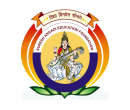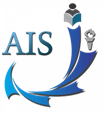AIS is designed to be an ideal grooming ground for future citizens. The ergonomically designed infrastructure enhances the teaching and learning environment. The classrooms are equipped with audio- visual aids like smart boards, projectors etc. that make learning interactive and enjoyable. Learning would be fun for preschoolers at the delightful toy room, informal junior’s library, dance and music rooms, splash pool, sand pit and outdoors play area.
Pre Primary

CURRICULUM
AIS curriculum offers an escalation of concepts, skill and content during 3 years of the child’s pre-primary education (Nursery, LKG, UKG). We follow an interdisciplinary thematic approach with units that revolve around the Seasons, Science Topics, Special Interests and Literature. We work to create a caring, co-operative social environment which promotes cultural, values and supports positive relationship and respectful interaction.

CARING & QUALIFIED STAFF
Our team consists of fully qualified, enthusiastic and caring professionals with extensive training backgrounds in the field of child development. Our teachers are also regular participants in various professional workshops which keeps them updated with the latest teaching methodology.

UNIQUE QUALITY
Pre-School is to create a safe, stimulating atmosphere conducive to fostering each child’s Cognitive Social, Emotional, and Physical Development. We create an environment in which a child can Explore, Discover and Create while encouraging his or her innate curiosity.

LEARNING CENTRE
We at AIS strive for Academic Excellence and Personal Development in a caring environment. This aides the individuals students to achieve their full potential. We believe that education must promote and nurture a spectrum of capabilities and skills in our children. We try to mould the child’s character by drawing out best in their body, mind & soul.

CREATIVE EQUIPMENTS
Creativity is pivot of successful person, to develop as well as refine your child’s motor skills, children will be working with a variety of materials. Some of the play or learning items for preschoolers provided by AIS include Paints, Crayons, Chalk, Play Dough, Sensory Tables, Blocks, Pincer Board, Flash Cards and Splash Pool.

MATH/PROBLEM SOLVING
To familiarize with numbers and make children feel that numbers are friendly, Students will be learning Pre/Math Skills, Number Recognition and Problem-Solving Skills which will build a solid foundation and love for math in years to come.
Grade 1 to 10

EVALUATION SYSTEM
AIS uses a system of continuous evaluation and provides parents with an assessment of their child’s academic progress based on a comprehensive system of reports and PTM’s.
Teacher’s observation and a child’s participation in the activity tests form the basis of the evaluation. AIS also makes use of Enterprise Resource Planning (ERP), custom software to analyse and access the student’s performance in academic aspect.

PHYSICAL FITNESS
Gross Motor Skills and Coordination are integral to a child’s development and we enhance this through a variety of activities such as Creative Movement, Running, Jumping, Balancing, Stretching and Climbing are some of the activities that will get your children up and moving.

PREP & REMEDIAL CLASSES
A major portion of the daily assignment is completed in the school under the capable supervision of the Teachers. Special attention is paid to bloomers by special educators during remedial hours planned according to the needs of these learners.

EMOTIONAL INTELLIGENCE SKILL
Sound emotional development is of paramount importance for a child’s healthy social relationships. Children’s behavior patterns are closely monitored within the frame work of their daily routine.
; ?>/11/Angadi-logo.png)
; ?>/11/SAEF-Logo.png)
